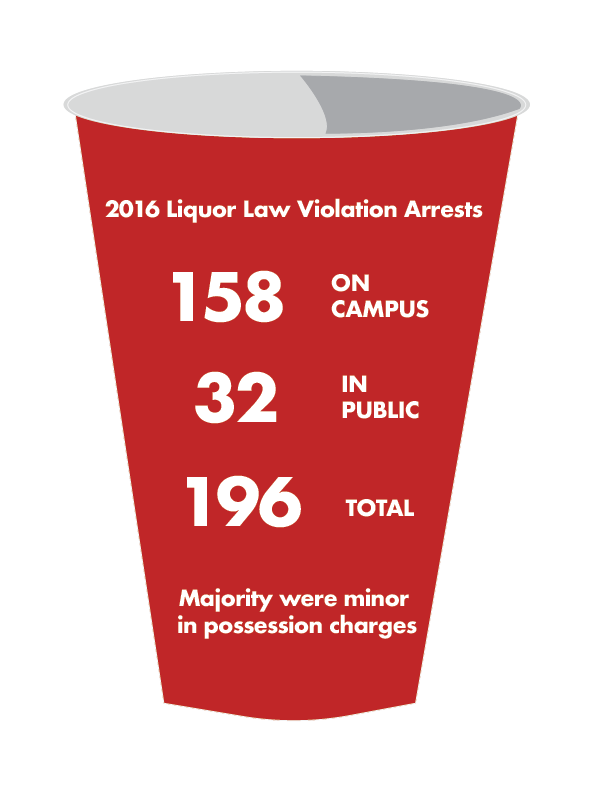
MUPD has recently made changes to how first-time offenders are charged with minor in possession or minor in possession by consumption laws.
As of this fall, any student under 21 who is a first-time offender will first be referred to the Office of Accountability & Support where each case will be reviewed, according to MUPD. If a student is found to be in violation of MU’s Standard of Conduct, then he or she will be required to complete education sanctions, including an alcohol education program.
In Missouri, it is illegal for any person younger than 21 years old to possess, purchase or attempt to purchase any intoxicating liquor, according to the Missouri Rev. Stat. 311.325.1. MIPs also apply to any minor who appears “visibly intoxicated” or has a blood alcohol level of more than two hundredths of one percent.
MU regulations “prohibit the unlawful possession, use, distribution and sale of alcohol and illicit drugs by university students and employees on university property and at events,” according to the Office of the Registrar.
In the past, law enforcement officers have first issued a summons to first-time MIP offenders, which then followed with a trip to court and a referral to the Office of Student Accountability & Support, since a MIP is a misdemeanor. If convicted, a student could be fined up to $1,000 and risks imprisonment for up to one year, according to the same stature.
Students would also be responsible for any court costs or attorney fees and if the violation occurred on campus, their parents would be notified, Sara Diedrich, public safety information specialist with MUPD, said.
Instead, students will first be notified about MIP specifics and how violating the policy again could result in fines and a trip to court, Diedrich said.
MUPD Chief Douglas Schwandt said this new policy aims to help students using non-punitive measures.
“The new policy is an opportunity for our officers to educate underage students about the MIP policy and to give those students an opportunity to change their behavior and make better choices before sending them into the court system,” Schwandt said.
According to the National Institute on Alcohol Abuse and Alcoholism, almost 60 percent of college students ages 18–22 drank alcohol in the past month.
In 2016, there were 158 reported on-campus liquor law violation arrests and 32 public liquor law violation arrests. In total, there were 196 liquor law violation arrests in 2016. A majority of these 196 total arrests were minor in possession charges, according to Kevin Rodgers of MUPD Support Services.
Diedrich said the university wants to take proactive and helpful steps before immediately sending students to courts and having them pay major fines.
“Everything MU does is focused on helping our students be successful,” Diedrich said. “Our hope is students will ultimately make different choices in the future and realize that some decisions can have a long-term, negative impact on their lives.”
_Edited by Morgan Smith | [email protected]_